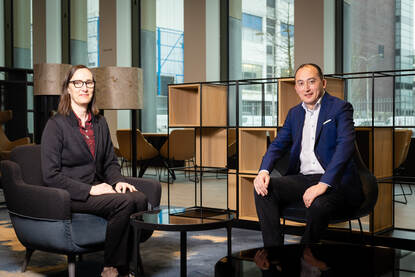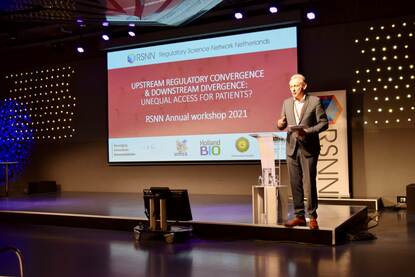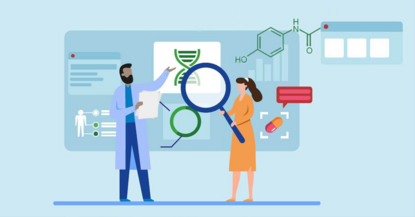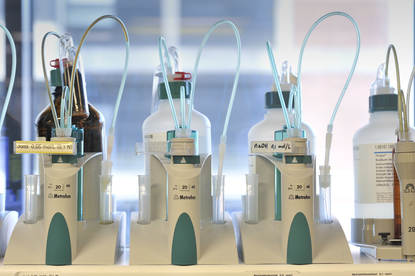Traditionally, it’s pharmaceutical companies that bring medicines to the market, with academics focusing on the fundamental aspects of research. Nevertheless, academic medicines development – upto and including access to the patient – is on the rise. During the MEB Science Day 2022, professors Carla Hollak and Teun van Gelder speak about what academic medicines developers need to mature: expertise and collaboration.
MEB Science Day 2022
The MEB Science Day 2022 live event was recorded and is available on the MEB's YouTube channel. Watch the entire recording of the MEB Science Day, or use the links below to view the presentations of Teun van Gelder and Carla Hollak:

As a professor of Clinical Pharmacology at the Leiden University Medical Center (LUMC), Teun van Gelder focuses on discovery and development of new medicinal products or drug targets. “Academic Pharma is one of the research themes of the LUMC. The traditional model is that medicinal products come to market, developed by pharmaceutical companies that bring innovative products from their own labs or after further developing academic discoveries.”
After transfer of a promising compound from academia to industry, the involvement of academia in the remainder of the development process is typically small. “Differences in culture and in goals between the sectors have been the reason, at least in part. Next to that, commercial parties have very limited interest in developing medicinal products for rare diseases or in drugs of which patents have expired.”
“Within the Leiden Bio Science Park, academia, start ups and larger pharmaceutical companies are literally each others neighbours. An excellent environment in which expertise and facilities are present, allowing for closer collaboration and thus contributing to more successful academic pharma.”
Besides the research theme at the LUMC, the Leiden University has a program to stimulate drug discovery and development as well. “The translational drug discovery and development program focuses on the entire spectrum of drug development, from target discovery up to and including efficacy and safety in translational studies.”
The real challenge, according to Teun, is to align the different institutions and research groups, and benefit from the ecosystem within the Leiden Bioscience Park. “That is why we want to focus on a more active role for the academia in medicines development, as well as more active collaboration efforts.”
To stimulate that collaboration, the LUMC is one of the partners in the National Pharmaceutical Knowledge Center (NFKC). The NFKC supports researchers in the areas where expertise is lacking. “We can for example make our colleagues aware of the possibilities of regulatory support at an early stage of the development.”
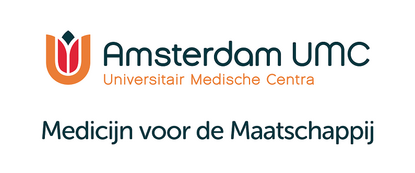
The need for collaboration
The ecosystem Teun mentions, in which medicines come and stay available at acceptable prices, plays a critical role. Carla Hollak, professor of Metabolic Diseases (in particular Inborn Errors of Metabolism) at the Amsterdam University Medical Center, emphasizes that: “Pharmaceutical companies, healthcare providers, pharmacists and other stakeholders need to work together to ensure durable availability.”
In 2017, Hollak took the initiative for ‘Medicijn voor de Maatschappij’ (see box 2, ed.) together with hospital pharmacist Marleen Kemper. “At that time a sudden price increase for chenodeoxycholic acid (CDCA) led to problems for patients suffering from cerebrotendinous xanthomatosis (CTX), a rare disorder leading to the inability to metabolize bile acids. Price levels increased to such an extent that reimbursement and hence access to this medicine was jeopardized. We decided to produce the medicine ourselves, to support accessibility to patients.” This so called magisterial preparation was made available for all Dutch patients. A breakthrough in the Netherlands, based on a successful initiative of academic professionals, supported by patients, and reimbursed by healthcare insurance companies.
A more structured approach
Carla agrees with Teun that academic institutions can indeed play a larger role in medicines development, including bringing them to patients. Collaboration with academia, industry and governmental institutions can be valuable in that perspective. She refers to a recent report by the Royal Netherlands Academy of Arts and Sciences (KNAW). “That report pleads for a more structured approach to knowledge on medicines development. We need to explore new forms of collaboration”, Carla thinks. “‘Medicijn voor de Maatschappij’ is learning on the job, working on several pilot projects.” She strongly believes in the bottum-up approach. “Build a case around a much needed medicine. And show how these can reach the patients: through new public-private collaborations or novel regulatory pathways.”
Carla and Teun see a lot of commonalities in the initiatives, both looking for unmet medical needs. Carla: “We focus on orphan drugs, accessibility and sustainable affordability, in all cases guided by the patients’ needs.” Teun: “We focus not only on new chemical entities, but also on rediscovery and repurposing of existing drugs, in which a negative business case (a new indication that might not be commercially viable, ed.) can also play a role.
'The time is now to take the next steps.'
Regulatory hurdle
The regulatory aspect of medicines development is a hurdle for academic development. Teun: “Pharmaceutical companies have a lot of knowledge in that particular field, systematically working on development plans toward a registered indication. In the academic practice things work the other way around: the initial focus is on science and interesting projects. Only after a lot of studies have been performed already, the investigators may consider the possibility of registering the drug. They then ask the registration authorities : do we have enough data? The right data? It’s so important to get the regulatory end points figured out timely, to avoid that crucial data are missing, or that studies need be repeated. That is where academic researchers need help.”
Carla nods in agreement. “We recognize that very much. It’s as if we speak different languages. Education can help to break language barriers between regulators, the industry and academia.” Teun: “In Leiden there’s the Paul Janssen Future Lab, which offers training in topics like clinical development, intellectual property and market approval. The STARS-project (see box) is a great initiative, in which the Medicines Evaluation Board (MEB) also participates.”
Carla: “The important thing is, that we all realize that knowledge levels on regulatory topics are lower than anticipated. Nothing to be ashamed of, but that awareness will help to improve that gap. Regulatory authorities like the MEB are very prepared to help, scholars shouldn’t have cold feet in asking for it. The time is now to take the next steps. Several initiatives are helping us, for example FAST (Future Affordable & Sustainable Therapies) which is really gaining momentum. ” Teun agrees. “And the industry can benefit as well. Our knowledge is complementary and both worlds might very well be able to help each other. Let’s look across that boundary.”
In conclusion
“Methods, regulations and resources in the area of pharmacovigilance have progressed enormously over the past several decades. Our abilities to detect signals and to analyse hypotheses have also improved, but we should be very cautious. Caution in how big data is analysed and interpreted, and how we communicate this information in society. The more information we have available, the bigger dangers seem to become in perception of people. Second to that, the interpretation of data is strongly dependent of the validity of the (pooled) data. That’s where our challenges are the coming years: lots of data, pooled data in a complex environment, will ask for very careful and accurate analysis and communication.”
Teun van Gelder
Professor Teun van Gelder was trained in internal medicine and nephrology in Rotterdam and also obtained a degree in clinical pharmacology in Nijmegen. He currently is professor of Clinical Pharmacology, and in particular Drug Discovery & Development, at the Leiden University Medical Center (department of Clinical Pharmacy & Toxicology; LUMC).
Academic Pharma
The University of Leiden provides strategic funds for Translational Drug Discovery & Development. “Our goal is to stimulate ‘Academic Pharma’, in which innovative drugs or drug targets are discovered and developed. This includes drugs that might be less interesting for pharmaceutical companies, because of a small patient population (due to rarity of a disease), or because of patent expiration.”
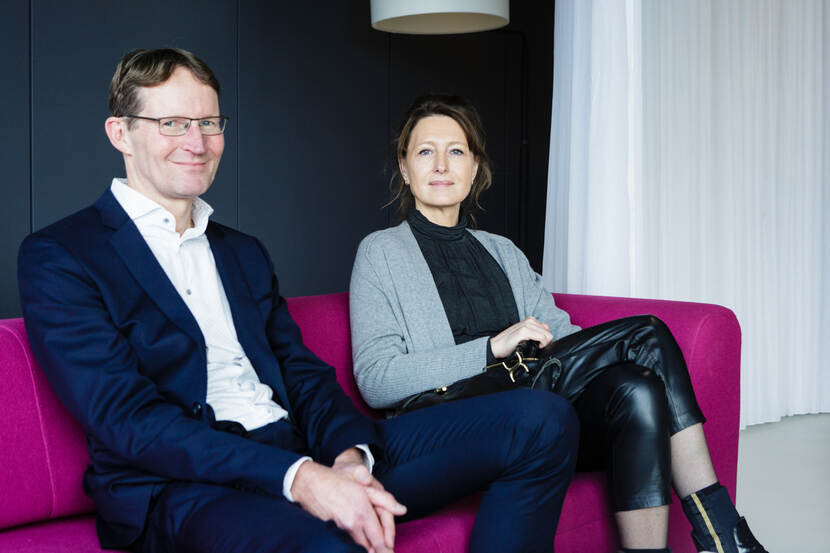
Carla Hollak
Professor Carla Hollak was trained in internal medicine. She works as a full professor of internal medicine at the Amsterdam University Medical Center. She specialized in inherited metabolic diseases and lysosomal storage disorders in particular.
Medicijn voor de Maatschappij
Carla Hollak is one of the co-founders of ‘Medicijn voor de Maatschappij’ (‘Medicine for Society’), a platform for affordable medicines for rare diseases and a durable availability of these medicines. “Our intention for this platform is to share knowledge and stimulate collaboration. We focus on academic involvement in orphan drug development as well as on research about legislation around rare disease medicines. Availability of these medicines is a problem sometimes. Mostly because of effectiveness issues or costs. Our aim is to investigate what causes these problems and to work on sustainable solutions for these specific patients groups.”
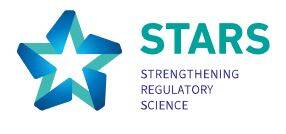
STARS – Bridging the knowledge gap
Carla Hollak and Teun van Gelder speak about what academic medicines developers need to mature: expertise and collaboration. These ingredients help in bridging the knowledge gaps in regulatory science.
Support Action on Strengthening Training of Academia (STARS) is a three year project that is aimed at identifying these gaps that may delay the development of new treatments. The overall goal of STARS is to strengthen academic regulatory science by training and offering professional education, targeted training and other forms of support to scientists in clinical development.
The project is funded by the European Union as a Coordination and Support Action on Strengthening Training of Academia in Regulatory Science (CSA STARS).
For more information on STARS, see our article about the 2nd European Stakeholder Workshop of STARS in November 2021, or go to csa-stars.eu. During the MEB Science Day, Viktoriia Starokozhko held a short presentation on STARS. Viktoriia is clinical assessor at the MEB and has been involved in the STARS project since it started in 2019. Her presentation can be viewed on our YouTube channel.



